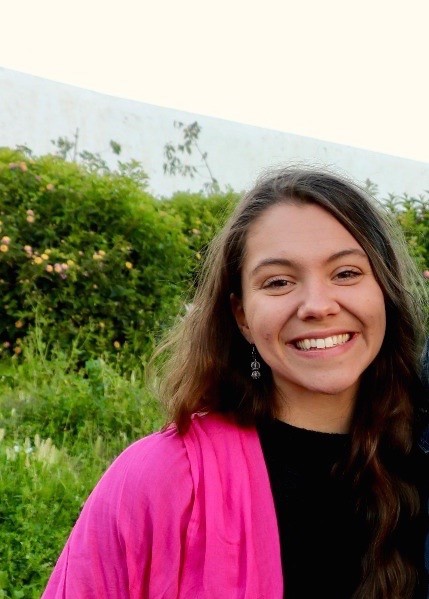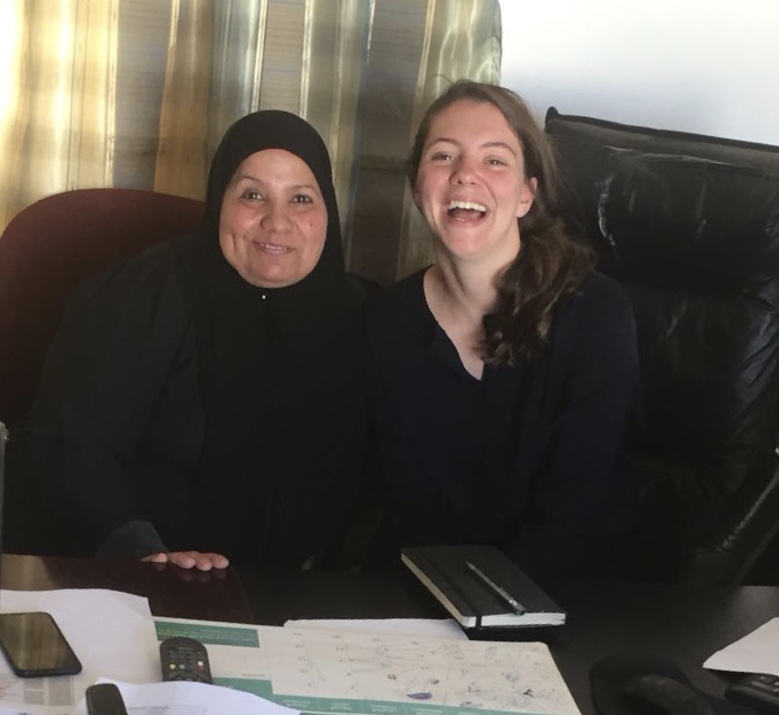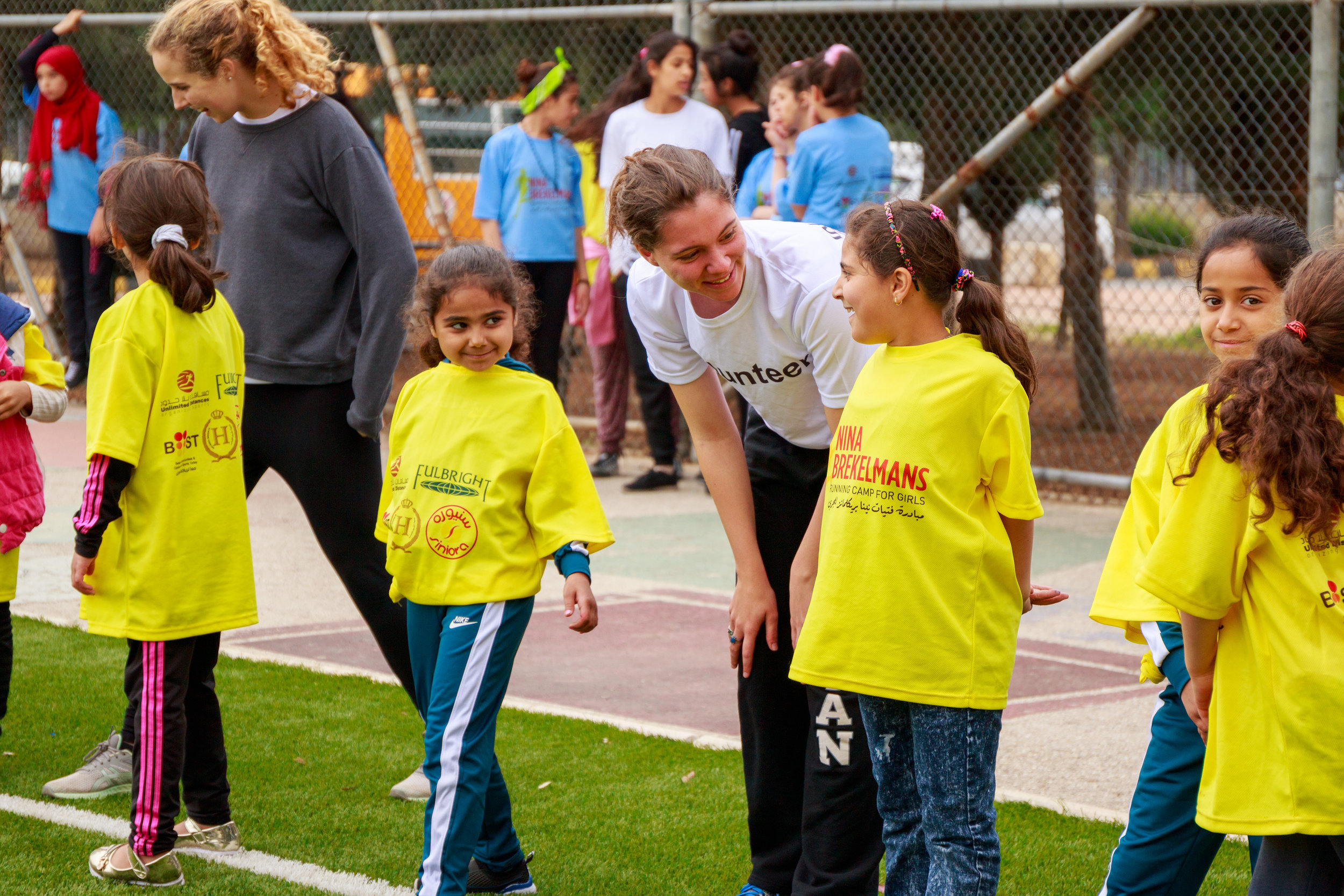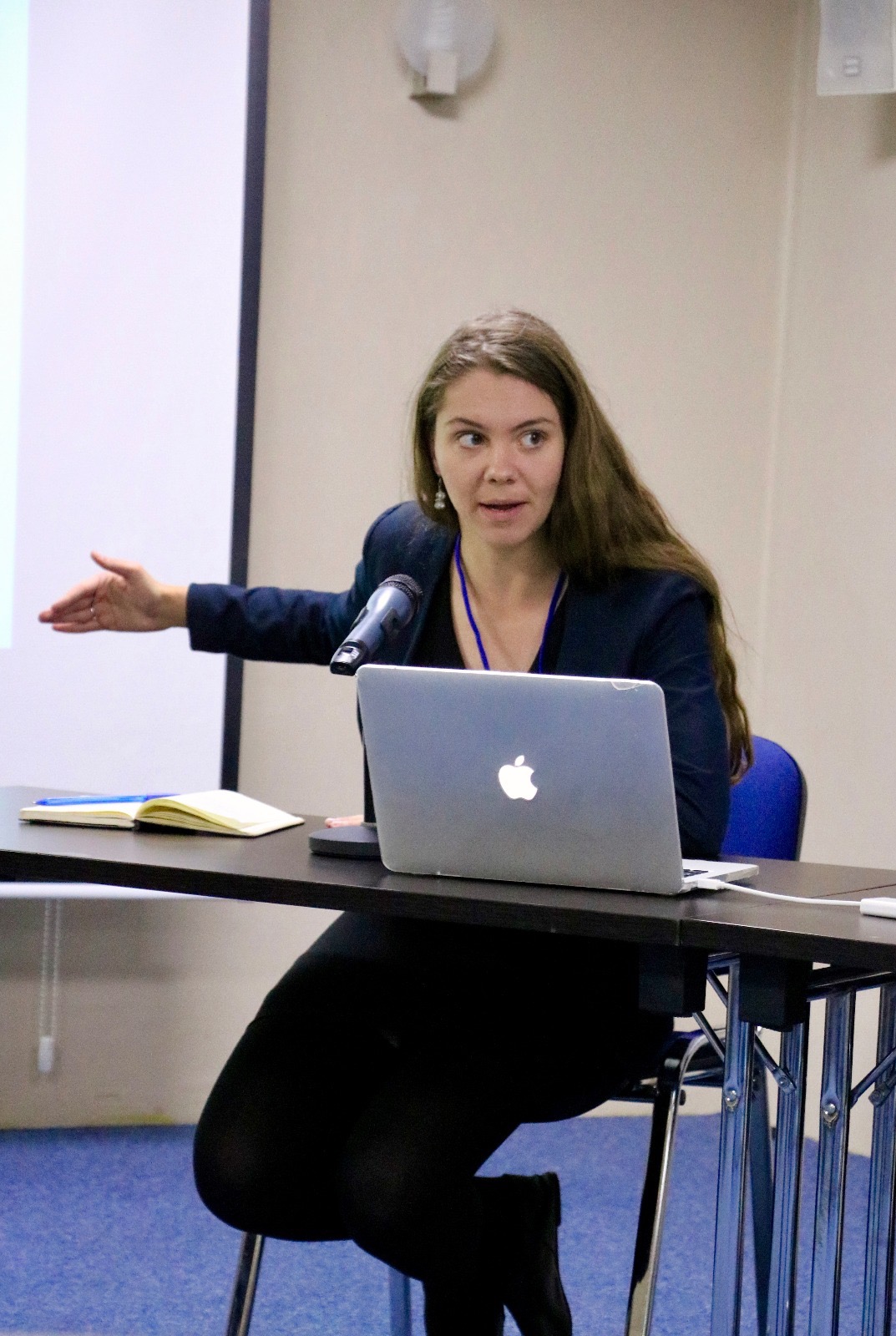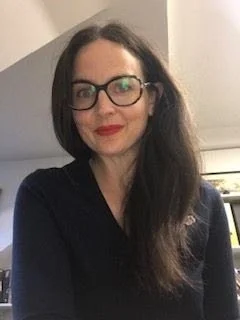Sophie Zinser
/Fulbright Research Scholar I Center for Women's Studies at University of Jordan, and Researcher and Field Staff at Za'atari Youth Center I Questscope
CV in brief
Education: Wesleyan University | Qasid Arabic Institute | Université Paris-Sorbonne
Previously worked: International Rescue Committee I Minnesota Democratic Party I Arab Renaissance for Democracy and Development
Find Sophie online Linkedin
Exclusive interview by Loes, 7 August 2018
You're living and working in Amman, Jordan. What is it you do there?
I am a Fulbright Scholar with the United States State Department and I am based at the Center for Women Studies at the University of Jordan in Amman. I also partner with Questscope, an international organization that operates a youth center with the United National Population Fund (UNFPA) in Za'atari Refugee Camp, which is administered by the United Nations High Commission for Refugees (UNHCR). As part of my Fulbright scholarship, I'm doing field research on gaps in service provisions for female refugees and vulnerable Jordanian populations in the rural parts of the Mafraq Governorate, the poorest, northern-most governorate of Jordan. I am also doing a comparative study of the service provisions, or the lack thereof, in Za'atari Camp. Those are my two research areas of focus.
Could you elaborate on your work for Questscope?
Part of the Fulbright Scholarship’s mission is to encourage cultural exchanges with locals, and in many cases, this takes form of volunteering or service. Questscope Za'atari co-designs programs with community members to ensure they are contextualized and relevant. Their approach is built on a rigorous commitment of listening to all community stakeholders and intentionally soliciting regular feedback from vulnerable and marginalized groups. That's why I was really drawn to their methodology. While working in Za’atari, myself and other staff collectively observed that there is a still a gap between the protection issues faced by refugees in Za’atari and the solutions and services that exist to address these issues. We wondered why refugees are not consistently accessing care to cover all protection needs? This issue has been studied by several researchers, however to date no study has been done on this topic that fully incorporates community voices from Za'atari and an exploration of community-based solutions, throughout all phases of research design and implementation. The study that I’m leading in Za’atari aims to address the information gap while promoting community input at all levels using a Participatory Reflection and Action (PRA) methodology. Refugees are included in all stages of the process, and I am very proud of that. Jordan is a research saturated area, and a lot of research is conducted by people like me, coming in on foreign grants, researching things that are of interest to their respective governments. To be able to research something that is of interest and importance to this community is a huge gift, and to have the backing of Fulbright as a prestigious scholarship that legitimates my ideas in the eyes of UN and governmental actors is a huge privilege. I am so grateful for the team I work with.
Where does your interest in the Middle East come from?
My grandmother passed away when I was a senior in high school. She had lived all over the world and was always fascinated with Arabic culture and even lived in Libya for a while. She was of Italian origin, but she would make hummus and tabouleh like '3ade' [Arabic for normal]. She was one of the first women that graduated from Johns Hopkins University with a degree in international studies, but because she was a woman she couldn't find jobs the same way my grandfather did with the same degree at that time, so she became an incredible wife, mother, museum docent, and polyglot. When she passed away I grew inspired by the life that she led and decided to learn Arabic and see if I could finish part of her story.
Are you fluent in Arabic?
'La3, akeed la3' [No, surely not]. Not entirely fluent. I have devoted intense time to language study over the past year, because the Fulbright Program allots a lot of funding for individualized language study. My advice to young people interested in working in foreign policy is to make as much of an effort as possible to learn a relevant language, and to learn it well by speaking as much as possible with native speakers. Seeking out everyday opportunities to speak the language, even if it forces you to be vulnerable and put yourself outside of your comfort zone, will benefit your courage and confidence in the long run. The hardest part about learning a new language is to practice listening deeply to others. This is hard for many people, especially Americans, and young people in general. However, learning Arabic has helped me become a better listener. Even if I can't speak as well, I know my listening skills have improved just by trying to learn the language.
Did you already have a specific plan for your employment following your studies?
No and I think that turned out to be one of my great strengths. I always focus on the task at hand, and I am a present person in everything I do. When I was a student at Wesleyan University, I embedded in my college and surrounding community as much as I could and I was involved in refugee resettlement work and community organizing, all while writing my interdisciplinary thesis. It wasn't until I moved to Amman for the first time, directly after graduating, to work on a research fellowship, that I realized I wanted to go back to the US, specifically northern Minnesota, and work there. I had a conversation with a Jordanian friend in Amman about how Trump could be elected President, and the implications for the entire Middle East. She told me that, if I wanted to positively contribute to work in the Middle East, it might be best to go back to the States and work to stop Trump. I thought that was insightful, and returned to the US for work on a local congressional campaign.
My connections have guided me in my professional career. It's important to build a network, not to be slimy and grab your way to the “top”, but to learn from people who are mentors or leaders in a field, who you can meet with for coffee and from who you leave thinking differently about a situation than how you did when you arrived. Those are the kind of people I have tried to build relationships with since graduating from college. Every one of those relationships has helped me figure out what I'm interested in, and has helped me get a broader picture of the world. I would definitely recommend making those connections to ask real questions, because people are willing to give real answers. The power of spontaneous conversations with experienced and kind people can help young professionals picture the world in a broader sense.
Do you feel at home in Jordan?
Living in Jordan is easy for foreigners. It's very safe. There's public transportation – albeit slow -, there are cafes and bars and things that are familiar for expats. Jordan is a home for me, and I am very comfortable here, but I feel that I will always have my home in the US. The Middle East is not scary. People are so welcoming. It's a place full of real genuine kindness, which I always remember so as not to continue to perpetuate cycles though there’s neo-colonialism just by being here.
What do you mean by that?
There are different kinds of foreigners coming in and out of Amman. It is a hot destination in the Middle East. It's an easy place for students to learn Arabic, and it's cheap and safe, compared to other places. People say they have embedded themselves in the community here who have lived here for a few months, that they have “found themselves,” or that being here changed them. Foreigners sometimes interpret the welcoming nature of Jordanian culture as if it is designed to host them or for them to have an “experience.” It all cycles back to them, which I think is a natural tendency. Any foreigner who claims to not be an intruder in such a politically charged place as Jordan has a very different awareness of their place in the community than I try to have. In general, I try to be a bigger listener than consumer while I am in Jordan.
It's not easy to talk about, but have you experienced any failures in your career?
There is a stigma around women and failures and the pressure on women to please, and having to placate people. Women are expected to do everything perfectly. Working internationally and cross-culturally is a messy process. There are different actors, each with different needs, and it obviously leads to failures. Those who do not acknowledge failure are delusional. I think it needs to be acknowledged more. Recently, for example, I spoke informally with a staff member in the center in Za'atari. She wanted to participate in part of the research, and asked me for permission to join. I immediately replied, 'yes, of course, ahlan wa sahlan [welcome]', but I did not clear it with her supervisor. He found out, and was upset. In his eyes, I was a foreigner coming in and thinking I could manage his staff. This, in my eyes, was my failure.
You have worked in Jordan and in the US. What differences did you find in the way women were treated in the workplace in these countries?
In general, in both places women are treated differently than men, for reasons I find to be shockingly similar in both cultures. Sexism is everywhere. Women tend to work on administrative or auxiliary tasks, because they are trying to be nice and get ahead, but these tasks don't advance them in the way they think, nor will they earn the respect they deserve.
I feel that in all my employment experiences I've had to be conscious of my body in the workplace, differently so than in other contexts. How I dress, present myself, stand or sit. I'm conscious of myself in a different way.
In places I have worked, leadership positions tend to be filled by men. Thankfully I've had the privilege of working directly for female managers, and it's something I've learned a lot from. Men can be allies, and that's wonderful and helpful, but it’s helped me to work with strong, powerful women to see how they have grown into the professionals they are, and learn to model that growth.
Do you aspire to become a manager?
In my next phase, or after Fulbright, I would really love to be in a managerial position because I've seen a lot of managers manage poorly. I know that strong management is a deficit in the NGO sector, because of a funding emphasis on hiring more field staff, so less time and financial investment goes into teaching management as a skill.
If I have a chance to practice management skills earlier on in my career, I will be able to better serve as I grow. I hope to ascend in the workforce in the future, and I need to be ready for those kinds of positions, which can come with focusing on developing those skills earlier on in my career.
How do you gain that experience? It can be difficult to find opportunities to practice those skills, as vacancies with leadership positions already require experience in leadership. Someone is supposed to give you a chance in order to gain that experience.
Everything you're saying is true. In my case, co-developing research with the Jordanian team in Za'atari and the Syrian team, putting it forth and managing the project, allowed me to have some type of operational point person role, take leadership on this project, and has taught me a lot about management. It has also taught me to ask for opportunities to grow and asking for responsibility. It's something I learned to do in a subtle way, like to ask if I can help, or sit in on larger meetings. When I worked at the International Rescue Committee (IRC) I had the privilege of sitting in on executive meetings with the CEO and the Vice-Presidents, and it showed me how they manage on a higher level.
How did you handle yourself in such meetings?
I always speak up. For better or worse, I speak when I have something to say. When I was an intern for an arts foundation in New York during college, there was an office-wide a meeting on the first day with the Executive Director about designing a new youth empowerment program. I was the youngest person in the room by a decade or two, and as such I brought a valuable and unique perspective to the table. I put up my hand and tried to explain from a youth perspective why their plan wouldn't work. Everyone looked at me wondering who I was, like “Is this the intern?” But because I presented my criticism in a clear and heartfelt way and offered a tangible solution, I was listened to and instantly respected.
There are times where maybe I should have slowed down, but for better or worse I haven't. I do think people, especially young people, and especially women, hold themselves back a lot more than they should. If your idea is good, share it.
Your Fulbright Scholarship ends in September. What's your plan after that?
I would like to return to the IRC or another major international NGO to finish the kind of work that I began, either in Jordan or New York. Due to Fulbright I had to cut my employment at IRC short, but while in Jordan I've actually got the chance to work with local officers at the IRC and other international NGOs. I have seen how the cultural, linguistic, and contextual knowledge that I gained in Jordan while on Fulbright will make me a better employee for them in the future.
Do you wish to continue working with refugees?
Absolutely. The global refugee and migrant crisis is changing our world right now, specifically the way that governments are engaging with global refugee populations. In my later work and hopefully graduate studies, I’m interested in studying how international aid moves from governments to local community organizations as a fascinating deferral of responsibility and diffusion of power. Governments give certain pools of aid funding to government agencies. Those agencies subcontract the aid to international NGOs or private agencies to manage and implement programs, and those organizations then subcontract the ideas of their projects to local partners. The same governments that make the wars also fund the aid, which is a harsh reality that serves as the backbone of the global international aid system. One interesting and new exception to this system is China, which is becoming a leader in foreign aid through economic investments with its One Belt, One Road initiative. I hope to have the chance to study China’s growing role as a major player in international aid more in the future in order to be a better NGO leader in the future.
In terms of future plans, if there is a way that I, as one person can listen to people that have experienced the complexities of war and the global migration crisis, and work within my own confines as an American citizen to collaborate with individuals in this system in an effort to compassionately create policies that serve them, then I will have achieved success. I hope to have a position later in life where I am able to impact a large number of lives in a more tangible way, while keeping a local and grounded perspective.

